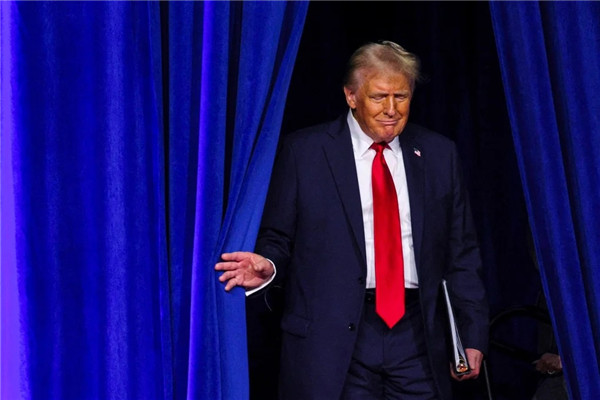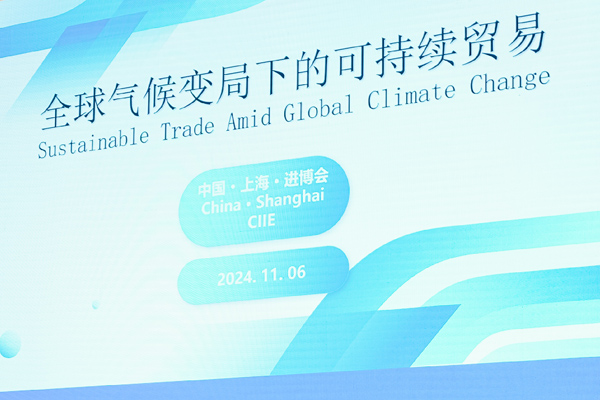CCG Holds Seminar to Examine US Presidential Elections Impact
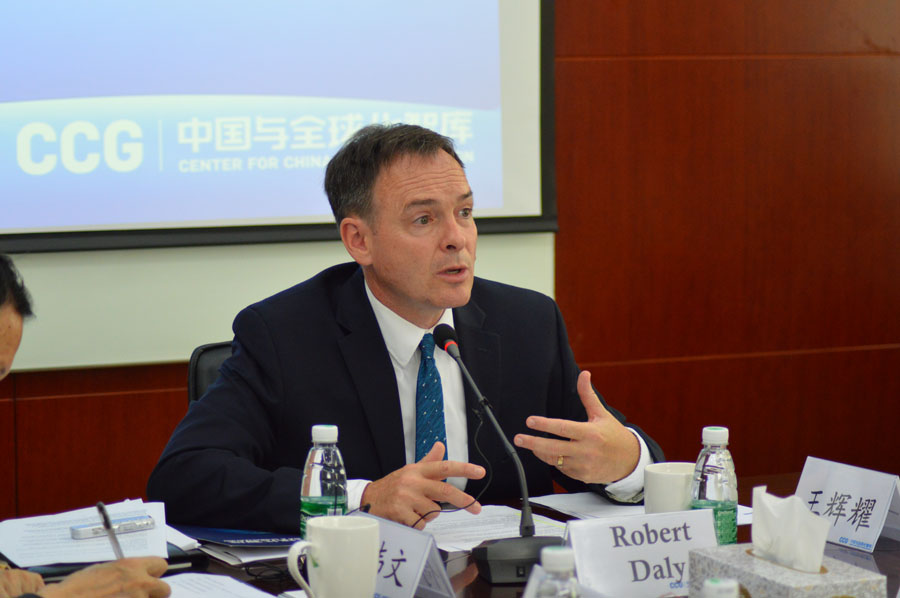
Robert Daly: Director of the Kissinger Institute on China and the United States at the Woodrow Wilson Center
As the US presidential primaries wrapped up, the Center for China and Globalization (CCG) held a seminar on July 25 to discuss the impact of US Presidential Elections on the Sino-US relations, featuring Dr. Robert Daly, a leading China expert and the Director of the Kissinger Institute on China and the United States at the Woodrow Wilson Center. The purpose is to explore various implications of the US Presidential elections for the future of the bilateral relations.
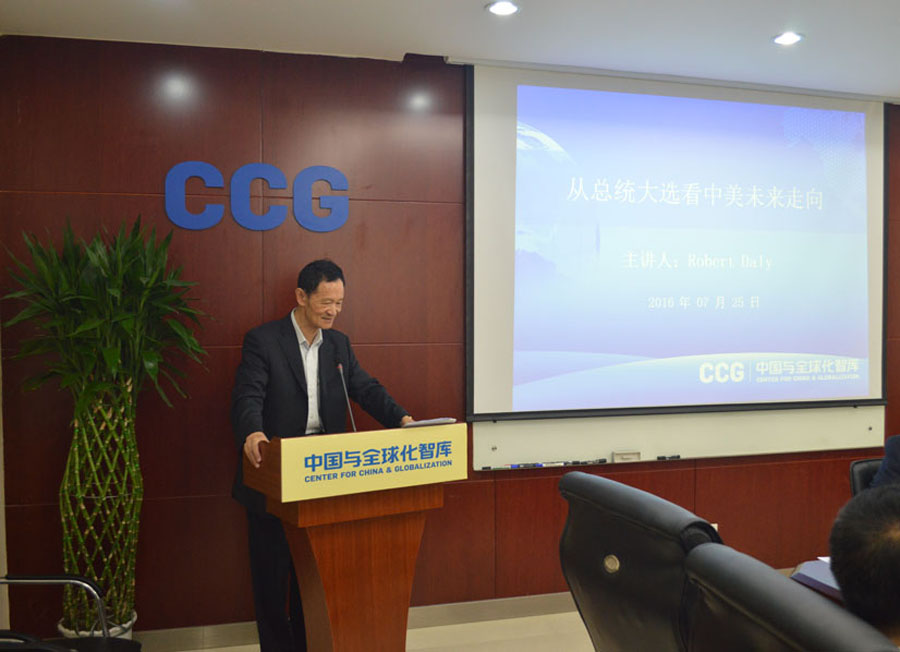
He Weiwen, CCG’s Vice President and Former Economic and Commercial Counselor at the Chinese consulates in San Francisco and New York.
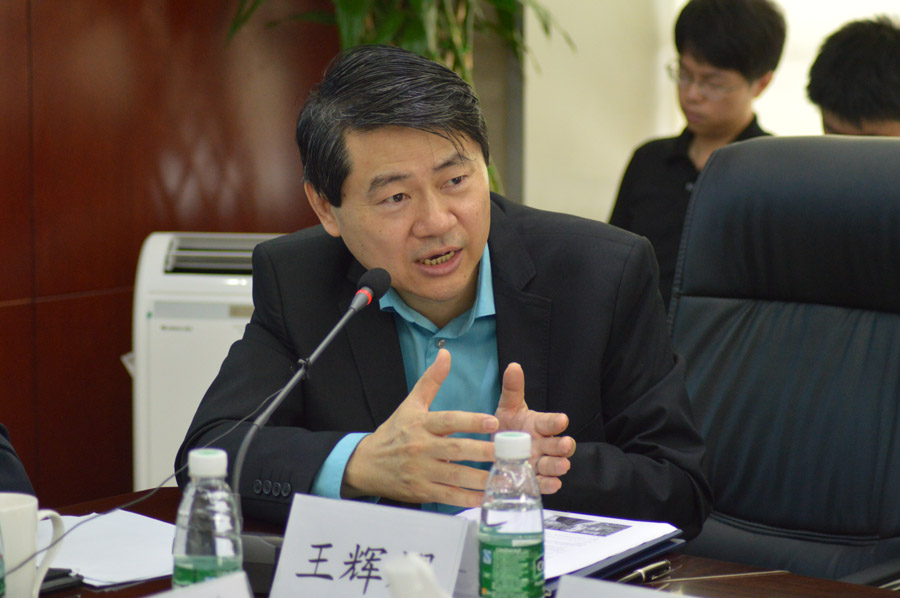
Speaking at the seminar, titled “Examining Prospect of Sino-US Relations from US Presidential Elections,” CCG President Wang Huiyao noted that the Sino-US relationship is one of the world’s most important bilateral relations. The two countries have maintained close exchange and cooperation in the political, economic and cultural fields, and joined their effort to safeguard world peace and stability. Therefore, it is important that this relationship remains strong and intact despite some negative opinions presented during the elections.
With less than four months left before the Election Day on Nov. 8, both Republican and Democratic parties have presented their presidential nominees – Donald Trump and Hillary Clinton, respectively. The unprecedentedly intense competition for the White House has attracted massive attention around the globe and triggered numerous questions and concerns – Is Trump emergence fueled by the voices of the declining middle class? What lessons can we derive from this tug-of-war between the elites and the people? What does the US presidential election tell us about globalization and anti-globalization trends? How will the presidential elections impact China?
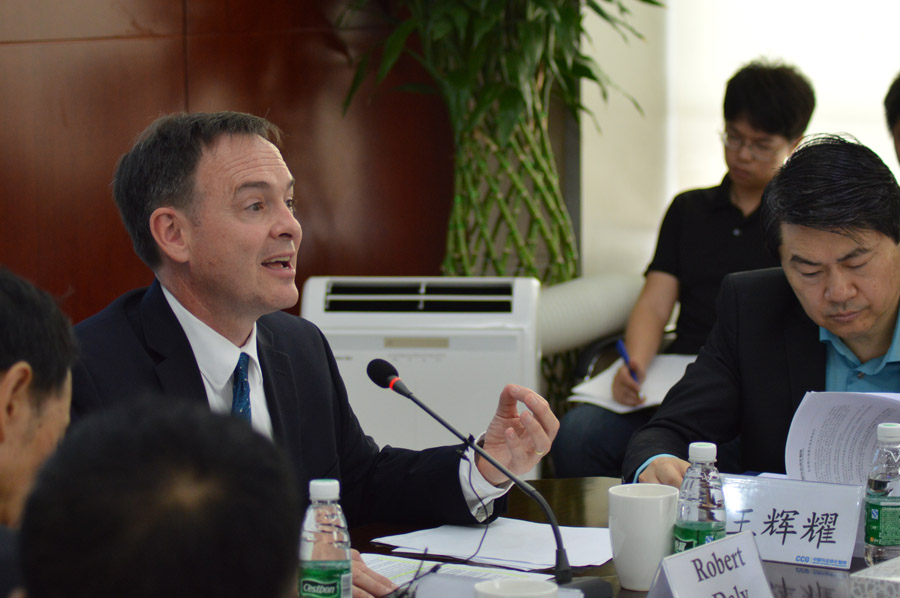
Robert Daly pointed out that compared to previous presidential elections, the partisan division is shown deeper this year. A large majority of American voters have negative opinions about both presidential candidates. Hillary is likely to embrace and improve on Obama’s policies should she be elected, while Trump, if elected, may face greater challenges.
In terms of the Sino-US relationship, Daly argued that it has not been the greatest concern of Americans so far in the elections. Hillary, once elected, may be more aggressive than Obama and is likely to follow through the “Pivot to Asia” strategy. The election of Trump presents greater uncertainties. However, if he brings the characteristics of a bargaining businessman into his presidency, the bilateral relations may have a better prospect.
With regard to the future of Sino-US relations, Daly emphasized that it is important that the both parties regain composure, especially on the South China Sea issue, and keep their conflicts under control.

He Weiwen, during his speech, shared his observations on the past five presidential elections since China and US established diplomatic relations. He pointed out that the negative rhetoric of the presidential candidates against China during the campaign simply faded away after they were elected. Therefore, it is more important to examine the actions of the newly-elected president rather than his/her words during campaign. In addition, He also emphasized that economic globalization is an inevitable trend that will not change because of some individual politicians.

Regardless of the outcome of the US presidential elections, there will remain some tensions in the Sino-US relations, said Huo Jianguo, CCG’s senior research fellow and former President of Chinese Academy of International Trade and Economic Cooperation at the Ministry of Commerce. However, it has been widely acknowledged that the Sino-US relations serve as the foundation for the solutions to many global issues. He expected that China and the United States can continue to strengthen their cooperation.
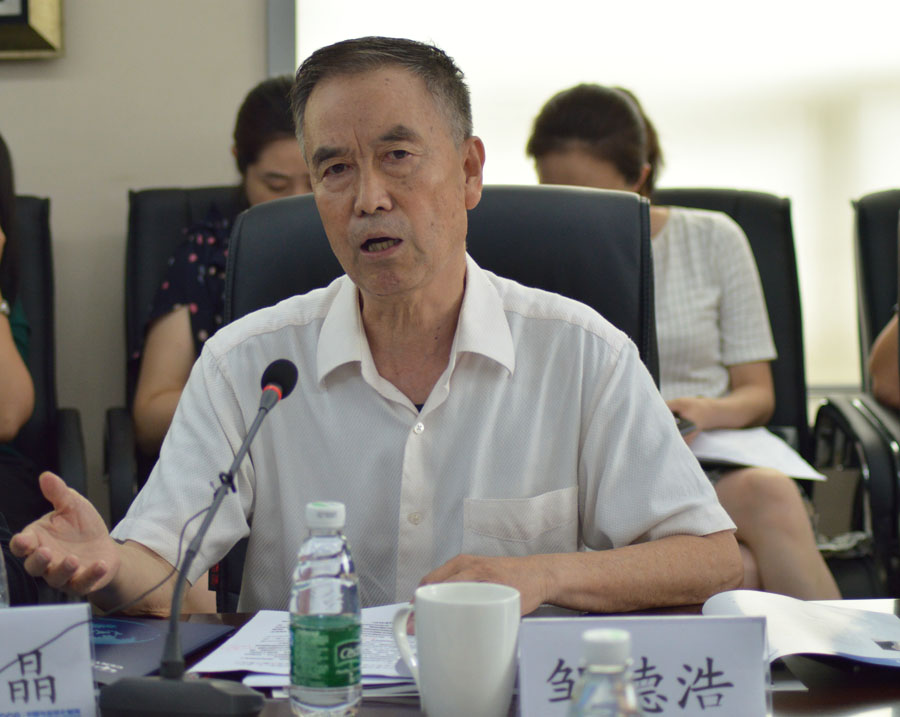
Zou Dehao, CCG’s senior research fellow and former Chief reporter of the People’s Daily at the United Nations, also agreed that the outcome of the US presidential elections will have limited impact on China and the Sino-US relations. Trump’s emergence shows Americans resolution and courage to explore new grounds and change the status quo. If Hillary is elected, she is expected to attach equal importance to domestic and foreign affairs, and immediately proceed to strengthen United States”pivot to Asia” strategy. She is likely to continue to take a tough line with China on the issues such as human rights, South China Sea and the Internet. Such confrontation is a double-edged sword which brings harm to both parties.
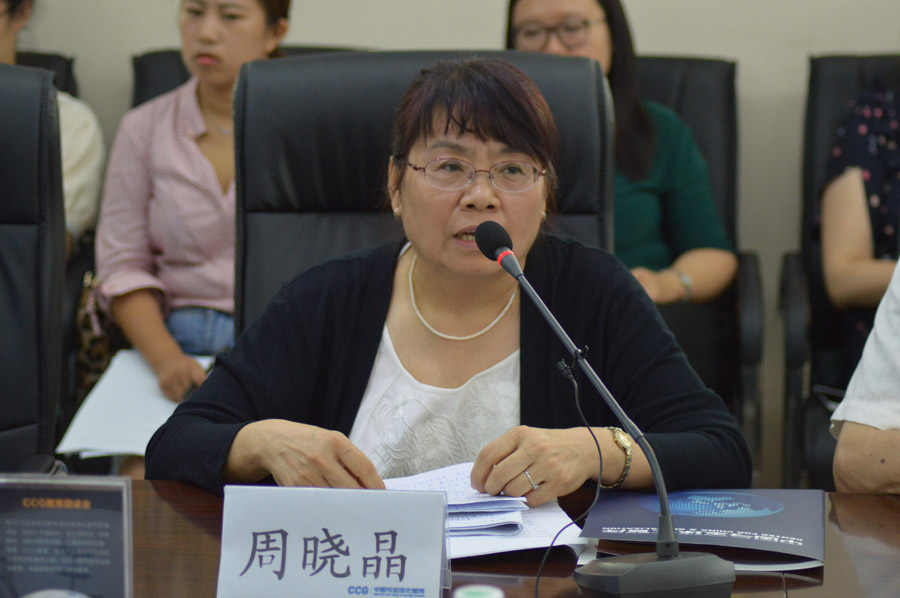
Zhou Xiaojing, CCG’s senior research fellow and former Director of Asia-Africa Development Research Institute at the Development Research Center of the State Council, said that competition over trade dominance is a prominent problem existing in the Sino-US relations. As seen in the elections, both Trump and Hillary have expressed disapproval towards TPP. Hillary will be more rational should she be elected while Trump’s election will present more uncertainties. She also believes the length of term of the next US president makes big difference, since it will influence the effectiveness of implemented policies.
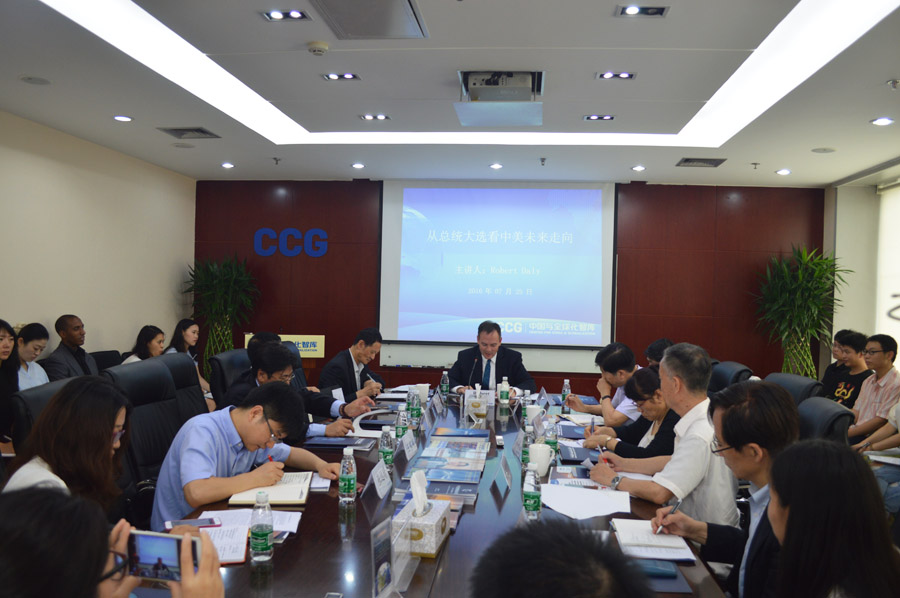
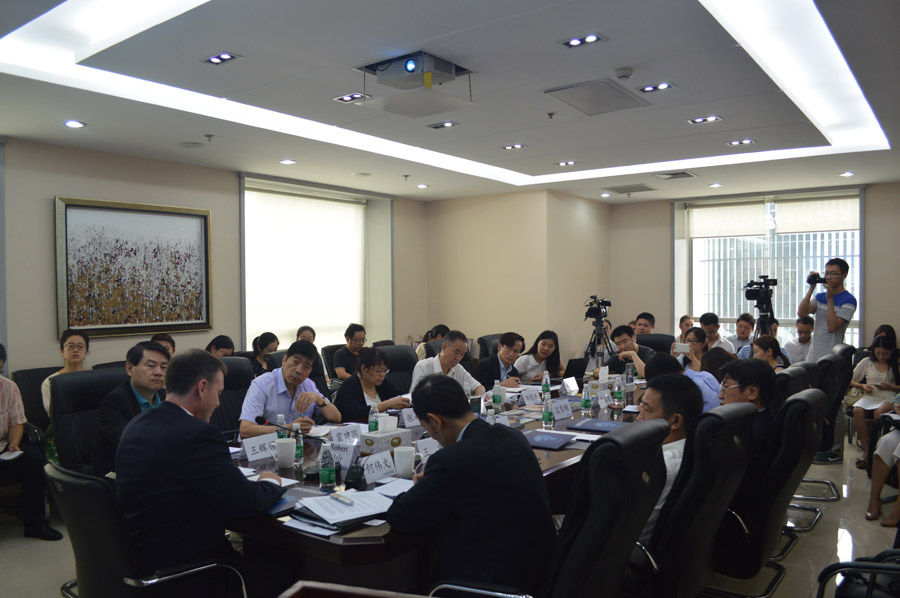
About Keynote Speaker Robert Daly
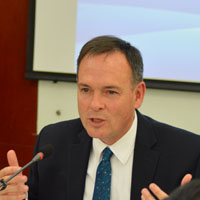
Robert Daly was named as the second director of the Kissinger Institute on China and the United States at the Woodrow Wilson Center in August, 2013. He came to the Wilson Center from the Maryland China Initiative at the University of Maryland. Prior to that, he was American Director of the Johns Hopkins University-Nanjing University Center for Chinese and American Studies in Nanjing. Robert Daly began work in U.S.-China relations as a diplomat, serving as Cultural Exchanges Officer at the U.S. Embassy in Beijing in the late 80s and early 90s. After leaving the Foreign Service, he taught Chinese at Cornell University, worked on television (北京人在纽约) and theater projects in China as a host, actor, and writer, and helped produce Chinese-language versions of Sesame Street and other Children’s Television Workshop programs. During the same period, he directed the Syracuse University China Seminar and served as a commentator on Chinese affairs for CNN, the Voice of America, and Chinese television and radio stations. From 2000 to 2001 he was American Director of the U.S.-China Housing Initiative at the Department of Housing and Urban Development. Mr. Daly has testified before Congress on U.S.-China relations and has lectured at scores of Chinese and American institutions, including the Smithsonian Institution, the East-West Center, the Asia Society, and the National Committee on U.S.-China Relations. He has lived in China for 11 years and has interpreted for Chinese leaders, including Jiang Zemin and Li Yuanchao, and American leaders, including Jimmy Carter and Henry Kissinger.
LocationBeijing

